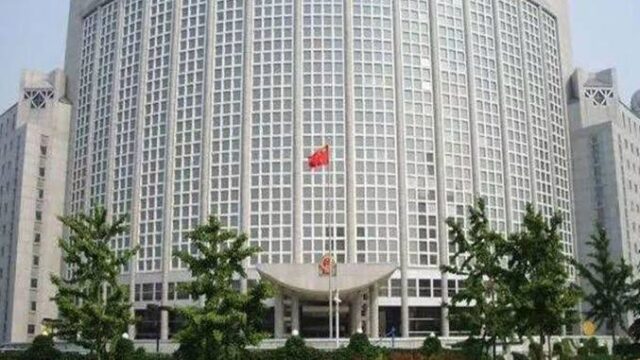The Chinese government has removed Qin Gang from the post of foreign minister and replaced him with his predecessor, Wang Yi, according to state media.
“China’s top legislature voted to appoint Wang Yi as foreign minister … as it convened a session on Tuesday,” the Xinhua news agency reported. “Qin Gang was removed from the post of foreign minister.”
In its announcement on the national evening news, state broadcaster CCTV gave no reason for Qin’s removal. He had dropped out of sight almost a month ago and the Foreign Ministry has provided no information about his status.
That is in keeping with the ruling Communist Party’s standard approach to personnel matters within a highly opaque political system where the media and free speech are severely restricted.
The ministry made no comment at its daily briefing on Tuesday. The move comes amid a foreign backlash against China’s increasingly aggressive foreign policy, of which Qin was a chief proponent.
Adding to the mystery around Qin’s removal, it was approved at an unusually scheduled meeting of the Standing Committee of China’s rubber stamp legislature, the National People’s Congress, which normally gathers at the end of the month.
Qin last appeared on camera at a meeting with Sri Lanka’s foreign minister in Beijing on June 25. The Foreign Ministry at one point put his absence down to bad health, but swiftly scrubbed the reference from its official news conference transcript and has since said only that it had no information to report.
Wang had previously served as China’s top diplomat in his capacity as head of the party’s office of foreign affairs. Without other strong contenders, it appeared likely he would retain that position, at least in the short term.
Earlier in his career, Qin had served as ministry spokesperson, during which he gained a reputation for criticism of the West and rejection of all accusations against China. That came to be known as “wolf warrior” diplomacy, after the name of a nationalistic movie franchise.
He later headed the ministry’s protocol department, during which he reportedly came to the attention of head of state and Communist Party chief Xi Jinping. He was next appointed ambassador to Washington from July 2021 to this January, a relatively short term but which presaged his rise to the head of the Chinese diplomatic service.
The shakeup in China’s diplomatic lineup does not immediately indicate a change in foreign policy, including continued support for Russia’s war against Ukraine. However, it follows U.S. Secretary of State Antony Blinken’s trip to Beijing — as well as trips by other top serving and retired officials — in a bid to revive a relationship that’s deeply riven over trade, human rights, technology, Taiwan and China’s territorial claims in the South China Sea.












My family members all the time say that I am wasting my time here at net, however I know I am getting familiarity all the time
by reading thes fastidious articles or reviews.